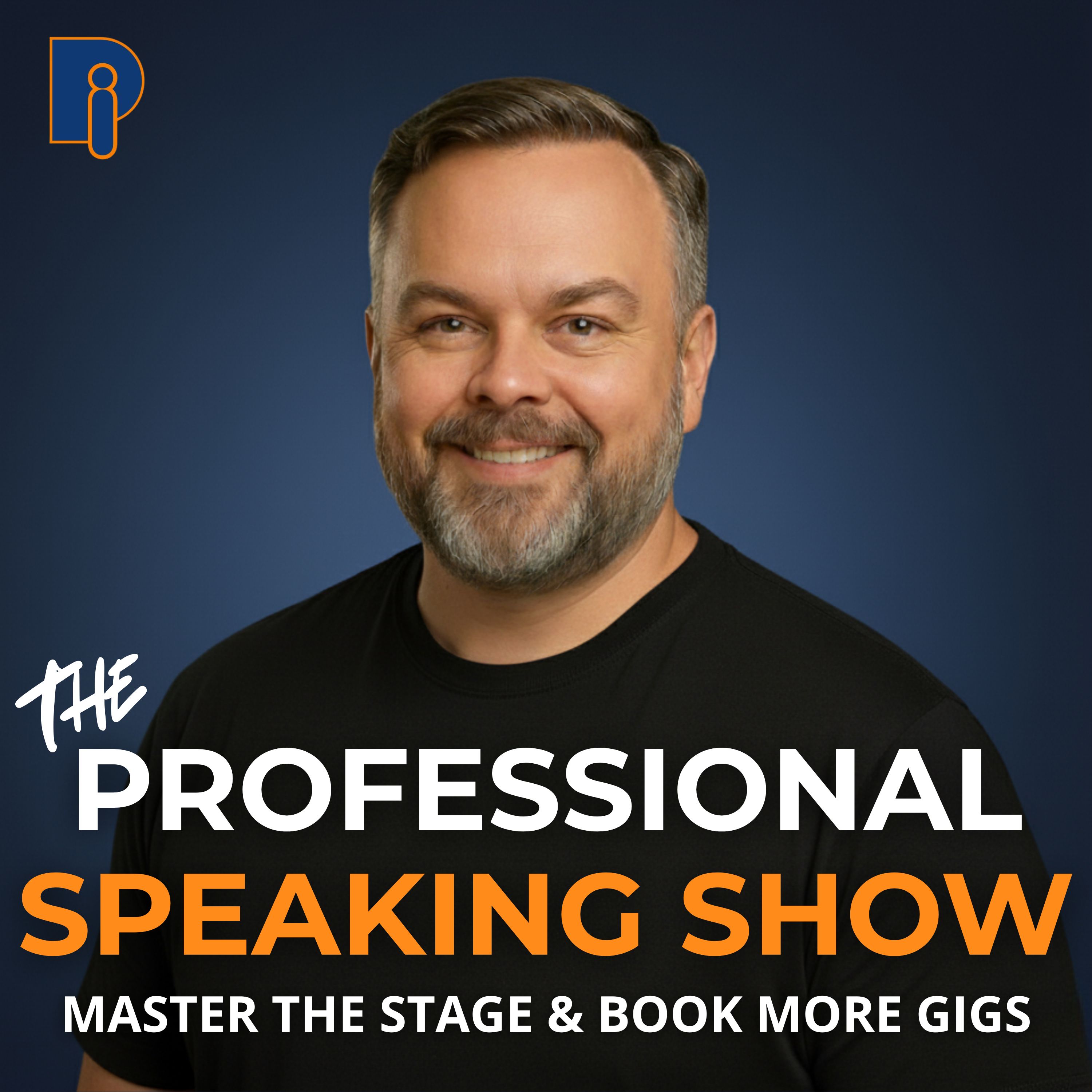Episode 175
The Dangers of Trying Too Hard
The Power of Detachment and Flow: Enhancing Influence and Inner Peace
In this episode of Present Influence, John explores the concepts of detachment, flow, and presence, and how they can help improve communication and inner peace.
He discusses the challenges of seeking approval and the paradoxical effect of trying too hard, illustrating the importance of letting go of specific outcomes.
John shares personal experiences and lessons from studying Bujinkan Ninjutsu, emphasizing the value of maintaining flow over force.
The episode also touches on the psychological need for belonging and the negative impacts of exclusion. Listeners are encouraged to find balance between being active participants in life and maintaining a detached, observant perspective.
keywords
trying too hard, making a good impression, pushing people away, neediness, fear of exclusion, tolerating mistreatment, detachment, presentness, inner peace, active participant, flow, setbacks
takeaways
- Trying too hard to be liked or impress others can have the opposite effect and push people away.
- Our need to belong and fear of being excluded can lead us to tolerate mistreatment and abuse.
- Relaxing and not being attached to outcomes can lead to better results and inner peace.
- Being an active participant in our own lives while also being able to switch between observer and actor is valuable.
- Getting back in flow after setbacks is important for maintaining a positive mindset and moving forward.
- Being present is key to influence and life, allowing us to fully engage and connect with others.
titles
- The Power of Being Present
- The Pitfalls of Trying Too Hard
Sound Bites
- "Why do we try so hard?"
- "Our need to belong is strong."
- "When emotions go high, intelligence goes low."
00:00 Introduction to Detachment and Presence
00:59 The Struggle for Acceptance
02:20 The Impact of Social Exclusion
04:01 Understanding Neediness and High Stakes
04:58 Embracing Flow and Letting Go
05:27 The Philosophy of Flow in Martial Arts
07:33 The Paradox of Attachment and Inner Peace
08:14 Practical Steps to Detachment
09:23 Conclusion and Upcoming Episodes
Mentioned in this episode:
The Strategic Speaking Business Audit
Take this quick quiz to find out where and why your speaking business is leaking opportunities.
Transcript
The Dangers of Trying Too Hard
===
John: [:Why do we sometimes put our foot in our mouth when we try to speak to someone important? I'm going to share with you some of the things that have helped me to detach from outcomes and live better for them and even how this helps me to experience inner peace.
So welcome to Present Influence the show that helps business leaders to develop the skills to influence and inspire. I'm John Ball, a presentation skills and keynote coach, professional speaker, and your guide on this journey to leadership-level communication and presentation skills.
with influence experts. Have [:Sure you have. You'd have to be living under a rock not to, but have you ever been that person? Now I can raise my hand and say yes to both examples, and there's a good chance you can too. So why do we do it? It's like meeting someone you admire or are attracted to and not being able to speak to them or say anything normal.
John: We want so badly to be liked by them or maybe to impress them. As paradoxical as it seems, we'd all be better off relaxing and not being worried about whether others like us or not, or whether they're impressed by us. But that's hard to do, isn't it?
they thought we were rude to [:It's not even funny how much we are sometimes prepared to do to keep ourselves in the circles we want to be a part of. Sometimes we may find ourselves tolerating bad behaviour, mistreatment, insults, abuse, and extreme levels, maybe even physical and sexual abuse to ourselves or to others. Our need to belong is strong.
There was a practice in more ancient cultures of banishment or exile, and it was often seen as a worse punishment than execution. Banishment meant never returning to your friends or family, never having the protection of your people, and potentially Facing a slow death by starvation or attacks by animals or bandits, solo travellers were not to be trusted.
This practice still [:They weren't allowed to see him or communicate with him, although they sometimes would speak with him on the phone secretly. If we think that this has limited effectiveness in the modern age, it is probably the main reason that he ended up taking his own life. We have a deep fear of being excluded, and it may exist in our genetic makeup because the effects of being shunned are serious and have often been life and death.
ong things? Why do we try so [:And I think the answer to why we try so hard and why it ends up coming off as too much is neediness. When we will only be satisfied with one outcome, we will often go to extremes to bowl for it with the guardrails up, hoping for that strike and missing it or bowling into the bumpers of the pin setter a machine because we panicked and we went too soon.
When emotions go high, intelligence goes low and the tension of high stakes situations undoubtedly qualifies as strong emotions. We get so focused on don't fuck it up that we end up fucking it up. Don't say the stupid thing. We end up saying the stupid thing. We're not in our right minds. We're so desperately clinging to an outcome that we can already feel is slipping through our fingers
when I was getting married I [: ing it all look graceful and [:However, the other masters also had that same flow philosophy , to combat and to life. When we are not trying to resist and not attached to a particular outcome, we can more easily maintain the level of thinking to flow with what's going on and use the forces coming at us to our advantage.
I love to read, and I'm currently enjoying The Tao of Poo by Benjamin Hoff, and it's a delightful little book that I heartily recommend that I've been meaning to read for years. I read a passage about how intelligence can sometimes get in the way of inner peace. Now, I was curious about that. I'm not saying, and the book isn't saying, that we should eschew intelligence.
t be able to experience bird [:I imagine it being akin to how it was before I existed and maybe how it will be after I exist. I'll just go back to being a part of everything. And it's a beautiful thing. We all have to live with the paradox of attachment to outcome, often repelling the things that we want or that we think we need.
Detachment and presentness in the moment can help us to maintain our inner peace, or keep our cool if you prefer. Maybe there's a situation that you really want to go a specific way for you right now. A job, a relationship, a wedding, something else.
at time to try letting go of [:Don't mistake detachment for apathy here. I'm not saying do nothing at all. I am saying do the things that you do because they are the things you want to do and the outcome will go the way it's supposed to go. You still have to show up as an active participant in your own life rather than a passive observer, but both perspectives are valuable. I like being able to switch between the two and helicopter out of those situations sometimes and being able to see from the observer's perspective.
n't really fully understand. [:Now, it may have taken me a little time to absorb what went on, that whole time, my inner voice was telling me it's all going to be okay. It's going to be better than okay Even if you don't see how just yet. Now over a month on from this and that's already proving to be true.
I sometimes get asked if my podcast and my business is called PREsent Influence or Present Influence, and my answer is always yes, it's both, and intentionally so.
I'm all about the presenting, and I'm also all about the being present. It's key to influence and it's key to life I hope you'll join me for upcoming shows where I'm gonna bring you some amazing guests who are gonna help you present Maybe a bit more present and help you present better deepen your impact and influence as well as these one to one times where it's just you and me.
hope you do have an amazing [:

